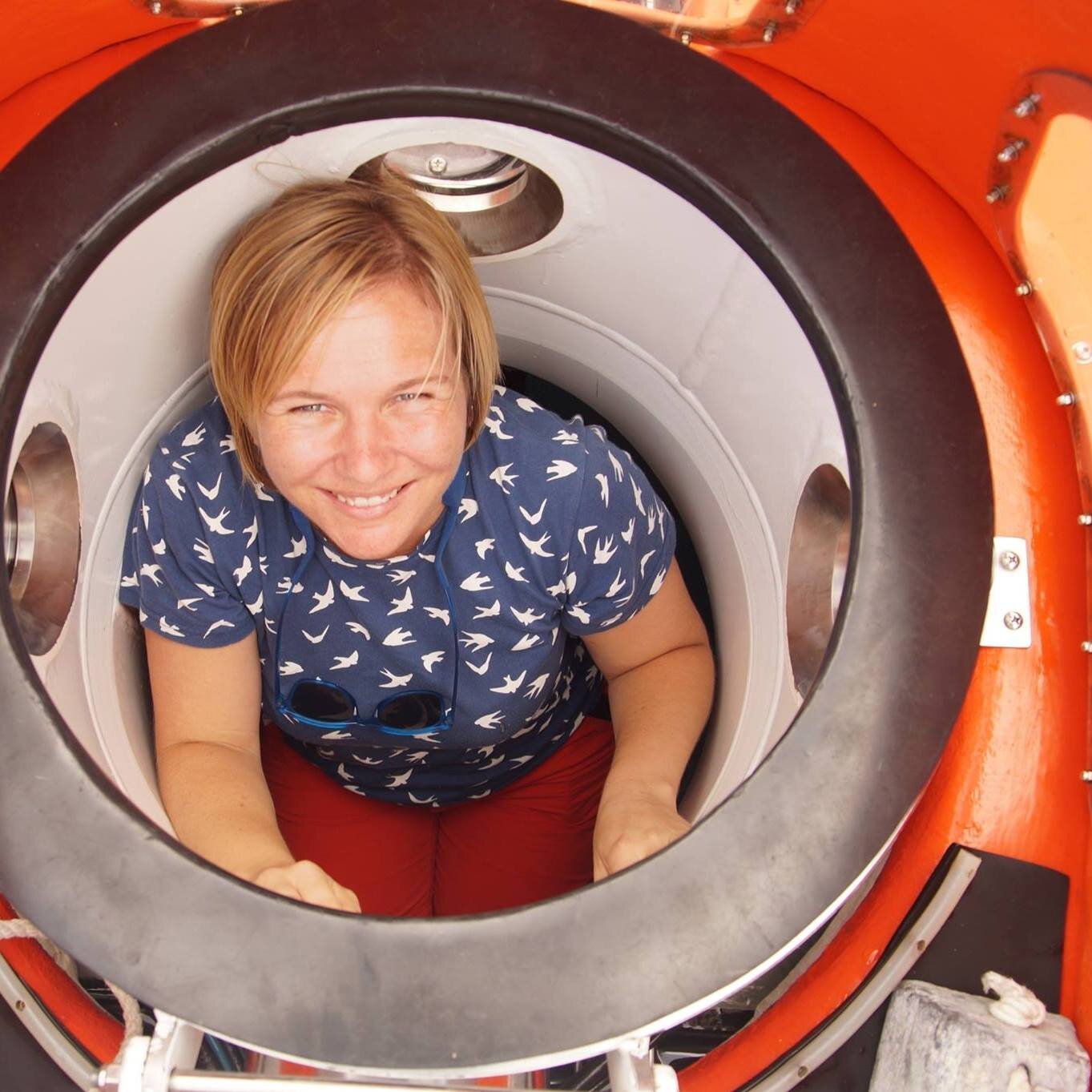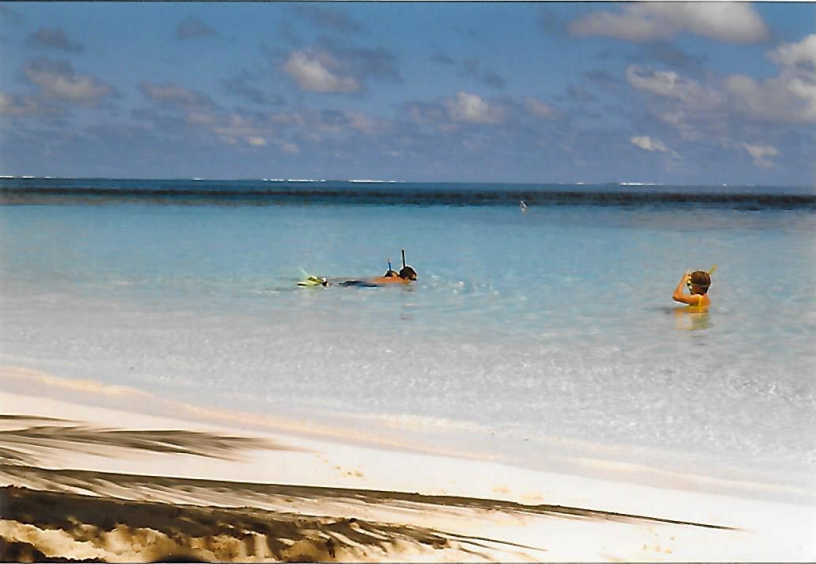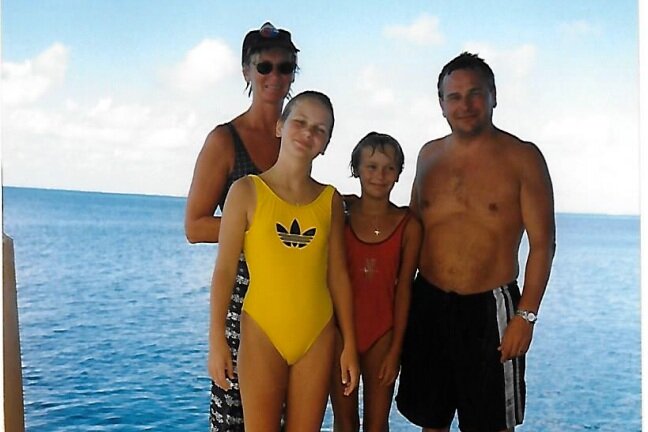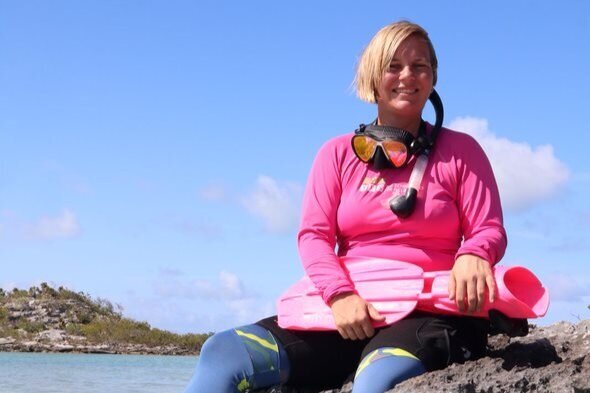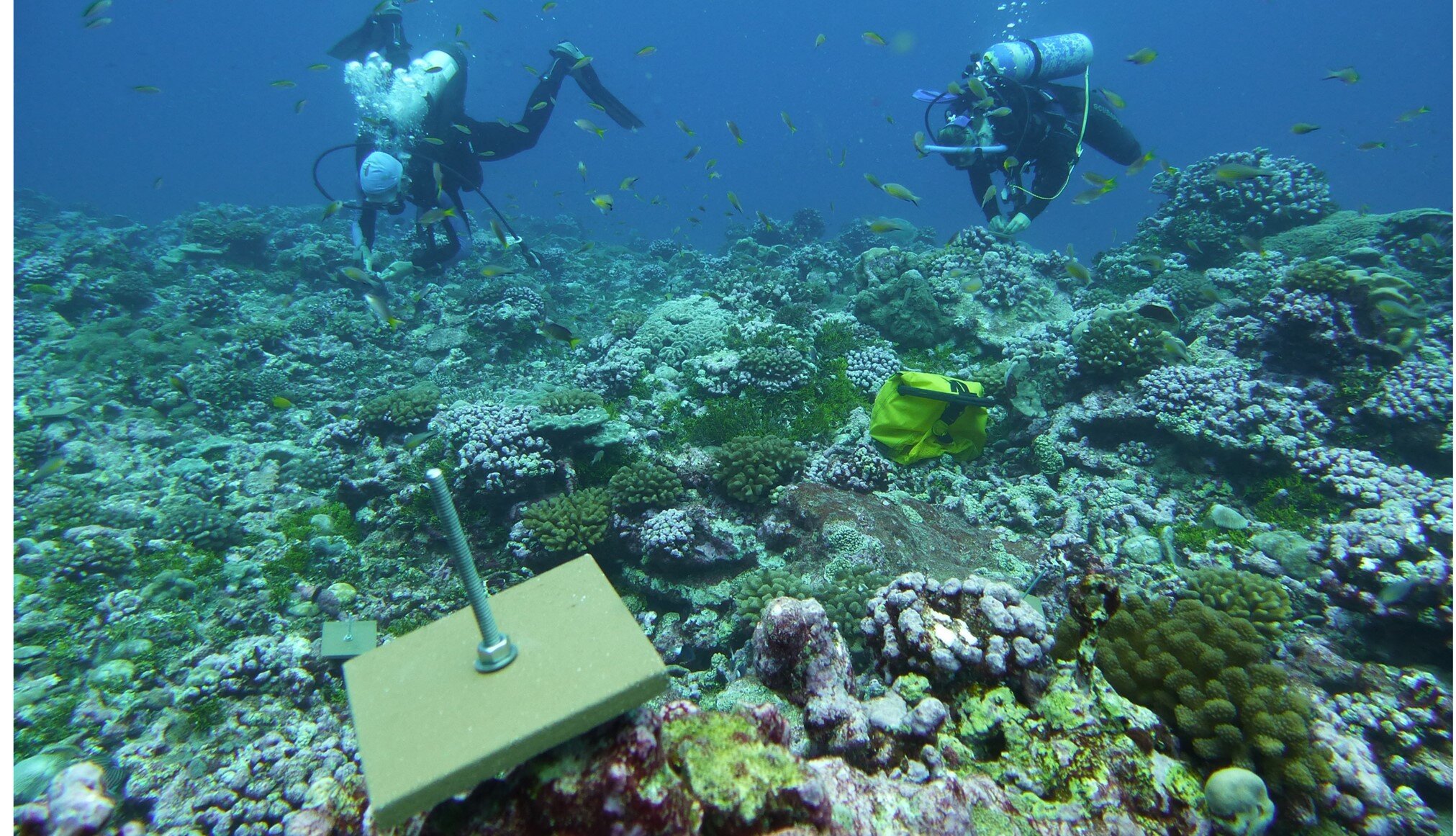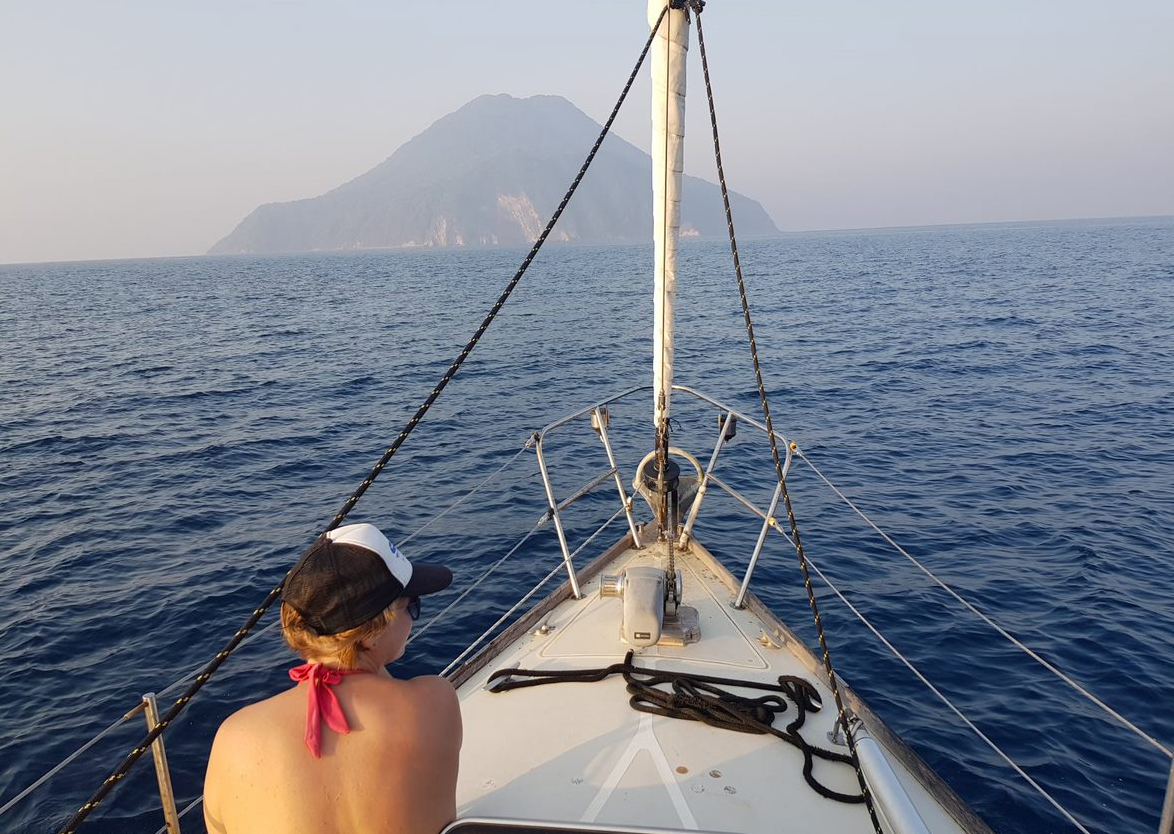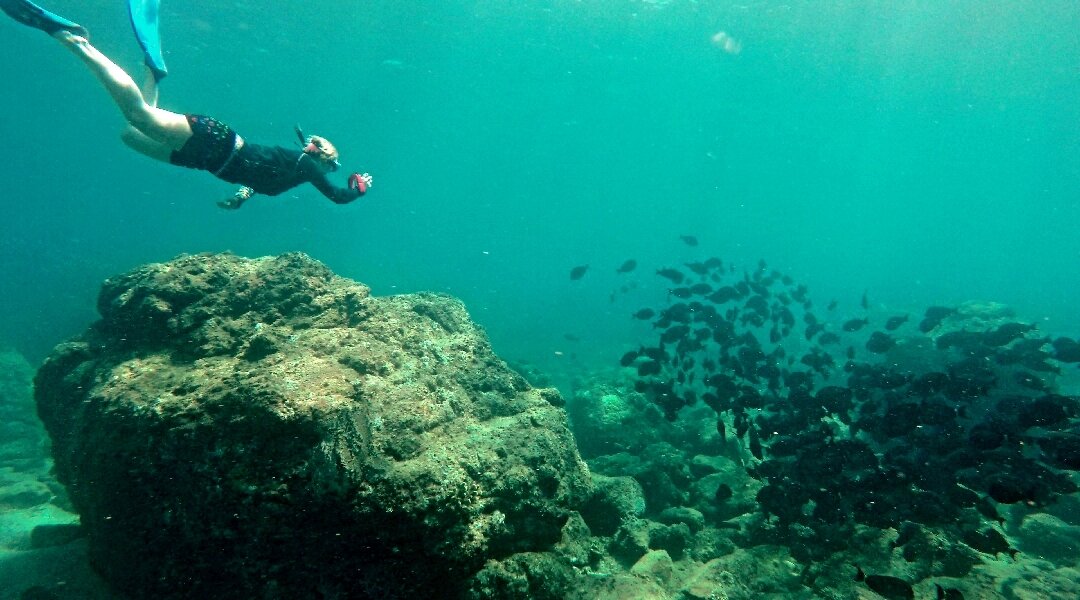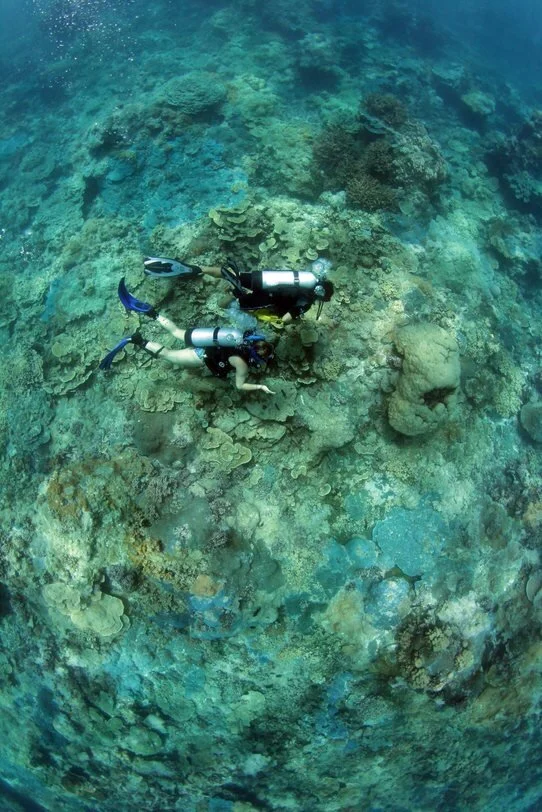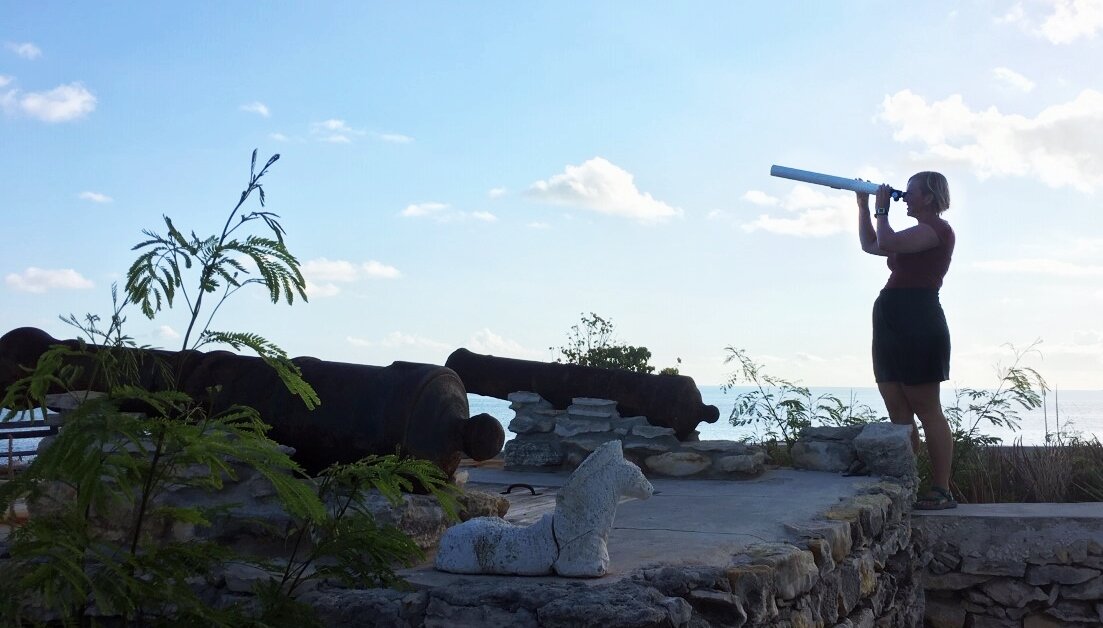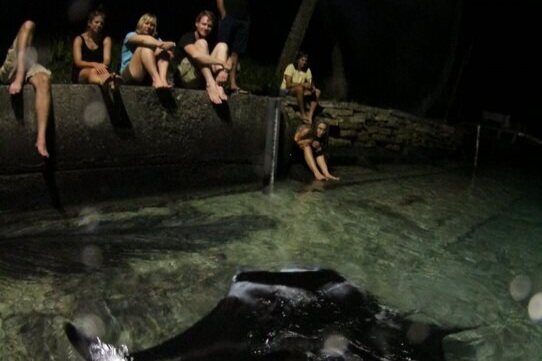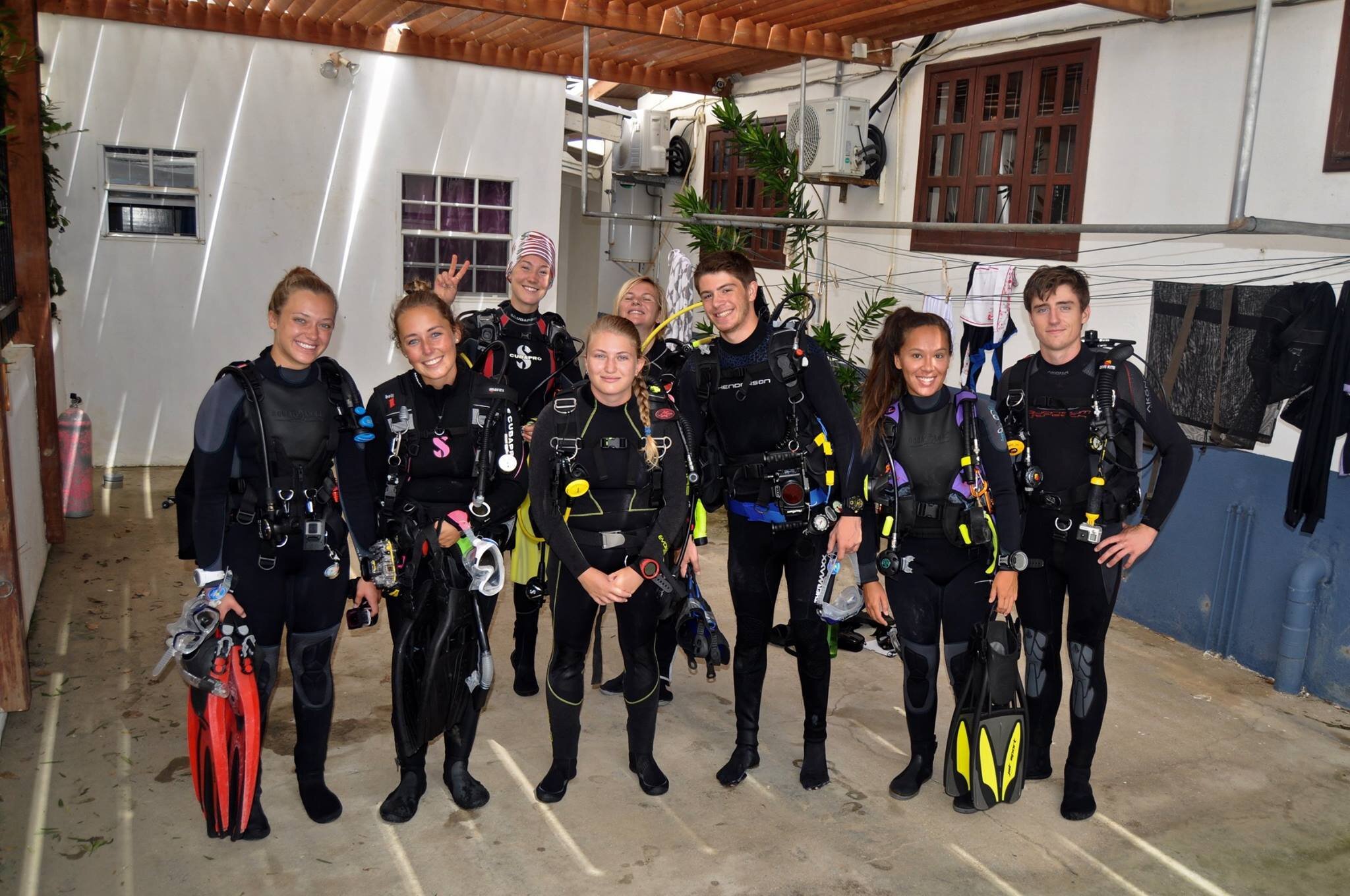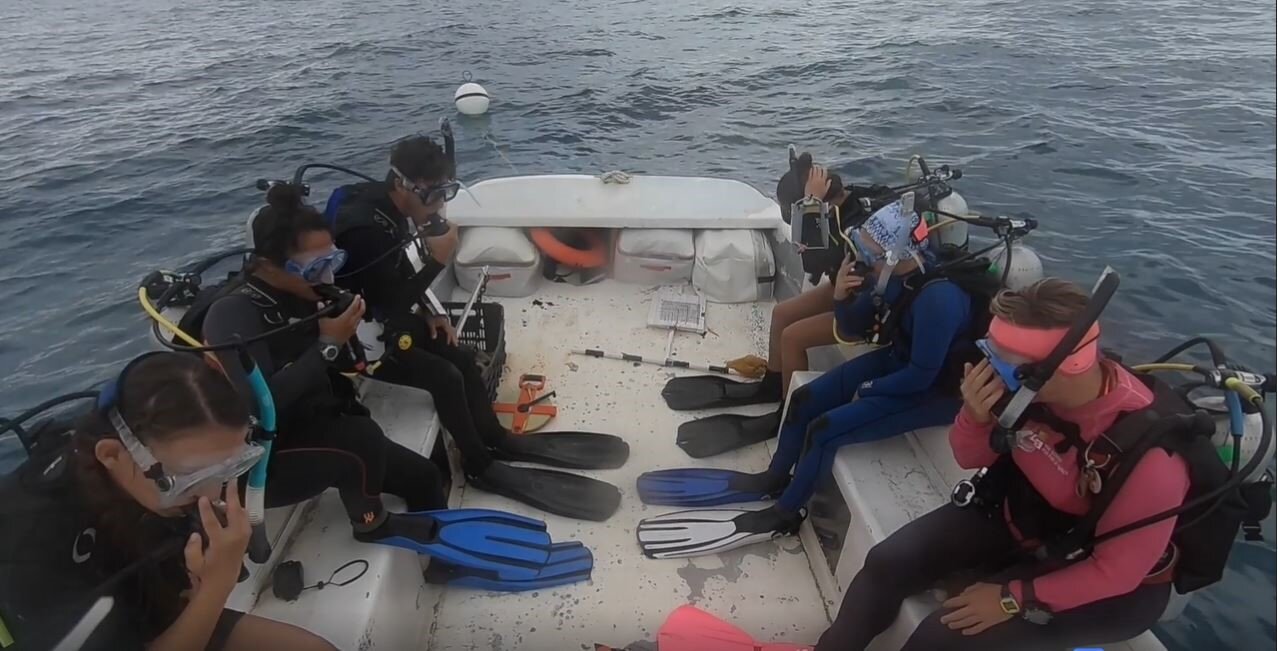Dr. Franziska Elmer: Marine Biologist, Climate Activist, artist
Tell us about yourself. How did you begin scuba diving and studying the ocean?
I grew up in Switzerland, which has no ocean but lots of mountains. I spent my childhood skiing and swimming in lakes. I was lucky to go on vacation at age 12 and learn to dive. The coral reef I saw there was a different world—so fascinating! It was difficult to choose between living by the ocean and studying coral reefs and living in Switzerland where I could ski, but in the end the ocean won.
Can you share more about your work?
After finishing school (lots and lots of school), I got the coolest PhD in the world. I was able to go to Palmyra Atoll, one of the remotest places in the world to study their almost intact and untouched underwater world. This is a place that is not open to tourists, it’s a nature refuge and the abundance of corals, sharks, manta rays and birds is breathtaking. After my PhD, my luck continued and I landed really amazing jobs. I was living at a research station right next to the ocean and my job was it to teach young adults about this ocean. This meant I was allowed to talk for hours about these ecosystems that fascinate me and even better most of our class time was spent in the water snorkeling and diving. Together with our students, I researched corals and an algae that was washing up in masses on our beaches, called Sargassum. However, after scientists told us in 2018 that we only have 12 years left to act on climate change—and our leaders did not exclaim an emergency—I knew that I, as an ordinary person, had to step up and demand action.
I quit the amazing job and volunteered all of 2020 for climate change. I helped a project dedicated to harvesting Sargassum algae for carbon capture and fuel production, I went to protests, wrote letters, gave speeches, and made art. I also actively transformed our system. In 2019, the coral reef community did not have opportunities to virtually attend a conference. To save coral reefs, we had to emit lots of carbon flying to meet each other, actively contributing to the destruction of coral reefs (as they will be one of the first ecosystems that we lose to climate change). This had to change! So, I volunteered many hours in 2019 and 2020 to organizing the first virtual coral reef conference. Since COVID-19 also hit in 2020, many other conferences went virtual and the entire world realized that this is possible and has advantages. I hope that virtual access will be the new normal, making it possible for us to meet without destroying the coral reef.
How did you become interested in the marine biology and climate action?
Marine research is a very unusual career choice in Switzerland. I became interested in marine research after I started diving on vacation to coral reefs, and feeling more in love with the underwater world with each experience. I would literally snorkel until my lips were blue. After high school, I volunteered two months for a national park in the Caribbean, we would walk the beaches at night to look for turtles that come up to lay their eggs. Later we would help straggling turtle hatchlings to make it to the sea. It took many more trips and internships until I was able to call myself a Marine Biologist.
In my twenties, I was also very active in sustainability and conservation clubs. I lowered my own ecological footprint and worked on projects that helped others to do so, too. After 10 years of this approach, I realized that nothing has changed on the big scale. We are extracting more, consuming more, polluting more. Our natural world that we depend on and are part of is collapsing. That is when I turned my commitment up a notch and also started becoming a climate activist: going to protests, giving talks, writing letters. I call that part of me "The Climate Pirate" and you can hear about my transition in my TEDx talk.
What do you wish everyone knew about the ocean?
I wish everyone knew how little resources coral reefs use despite being one of the most productive and diverse ecosystems in the world. When you snorkel on a reef, everything seems to be there in abundance. There is a lot of life and so many different species, colors, and ways of living. If you imagine a city that was similar to a coral reef, it would be a utopia. The really cool part, however, is that all of this is sustained on very little resources. The key behind it is REuse, REpurpose, REcycle, and close symbiotic relationships. When a fish poops for example, the poop is eaten by five fish before it reaches the ground! Imagine if everything you throw away got REused five times before it went to the landfill. To build utopian cities with abundance of food and opportunity for all, we do not need a lot of money—we need to be smart with what our planet provides and put into place a strong community that works together.
What do you hope to accomplish or learn through your work?
Currently I am working on a podcast about the Sargassum algae. We hope to spread the newest scientific discoveries, inventions, and the stories of everyday people who work with Sargassum or are impacted by it. We hope that by choosing a podcast and informal conversations that focus on personal stories that we can spread the knowledge to many people living in the impacted regions (Caribbean and West Africa) and all over the world.
With my climate activism I want to inspire others to also take action and stand up for the climate. I want to be able to look myself in the eyes in 2030 and say, "I did everything I could to avoid the worst effects of climate change." I don't want to leave any opportunity undone.
A favorite work memory: hammerhead shark versus eagle ray!
Please share a favorite memory from your work!
One day we were racking Sargassum on the beach and one of my students shouted "shark!". We all looked into the ocean and indeed there was a shark out there. It was hunting three eagle rays. At one point it tossed an eagle ray into the air, while taking a bite out of it. They all came closer to shore, where we were standing and we could see the eagle rays pass by, two of them unharmed. We also saw the fight between the shark and the eagle ray up close and could make out that it was a hammerhead shark. The dead eagle ray came to rest close to us on the ocean floor and once the shark stopped circling it and trying to attack the other rays, we went into the water to retrieve it. It had huge bite marks from the shark in its fins.
What advice do you have for young scientists, artists, and explorers?
If you are a diver, get your Divemaster certification. Being a Divemaster (or at least Rescue Diver) will open many doors for you and also give you the confidence and experience to be a great buddy underwater.
Thank you for sharing with us, Fran! Keep inspiring others and being a Climate Pirate.
We always love to be introduced to new ocean explorers. If there’s someone you’d like to see an interview from, send us your ideas!
